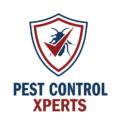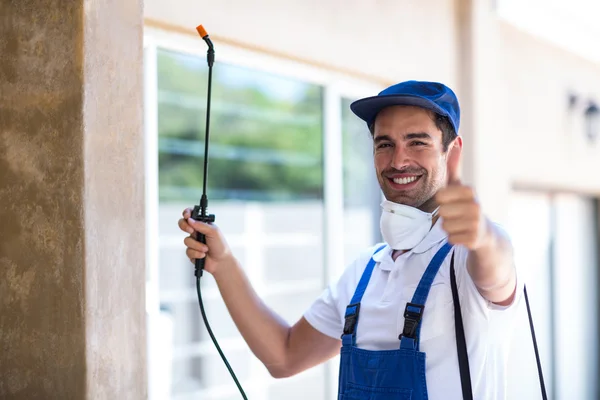Guidance from Pest Control Xperts
Homestead is known for its scenic rural landscapes, proximity to Everglades National Park, and family-oriented community vibes. With its warm subtropical climate, the area can draw more than just visitors—rats and mice also find comfortable conditions here. Below, we discuss how rodents get into homes, the best ways to seal them out, and why ignoring a small infestation can quickly lead to a major problem.
1. Why Rodents Thrive in Homestead
- Year-Round Warmth
- Mild winters mean rats and mice remain active 12 months of the year.
- Extended breeding seasons allow populations to expand more rapidly than in cooler climates.
- Rural and Suburban Mix
- Agricultural fields, fruit groves, and open spaces around Homestead can foster natural rodent habitats.
- When developments encroach on these areas, pests often move closer to residential neighborhoods.
- Ready Access to Food and Water
- Outdoor markets, home gardens, and yard debris can offer scavenging opportunities.
- Standing water in birdbaths or around yards may draw rodents seeking moisture.
2. Entry-Point Checks: How Rats and Mice Enter Homes
Rodents are adept climbers and can squeeze through tiny gaps. Routine inspection helps intercept problems before they get out of hand.
- Foundations and Exterior Walls
- Look for cracks, holes, or spaces near the base of the house.
- Check where utility lines or pipes enter the structure for possible gaps.
- Doors and Windows
- Worn weather stripping or torn screens can leave small openings.
- Replace door sweeps that don’t fully close gaps at thresholds.
- Roofs and Attics
- Missing shingles, damaged soffits, or uncovered vents can be convenient rodent gateways.
- Keep an ear out for scratching noises—often the first sign of hidden nests.
- Garages and Sheds
- Gaps at the bottom of garage doors are a common entry route.
- Cluttered storage spaces, like corners piled with boxes, provide nesting areas.
3. Sealing Tips: Keeping Rats and Mice Out
Once you identify weaknesses, addressing them promptly is vital for preventing rats and mice from settling in.
- Use Strong Materials
- Fill small openings with steel wool or wire mesh, then seal with caulk or foam.
- Cover bigger gaps with hardware cloth or metal flashing to deter chewing.
- Upgrade Door Sweeps
- Doors that leave even a small gap give rodents an easy entry.
- Ensure sweeps form a tight seal against door frames or floors.
- Trim Vegetation
- Shrubs, vines, and tree limbs touching your house can work like bridges to upper floors.
- Remove piles of leaves or lawn debris that might attract nesting.
- Keep Trash Secure
- Store garbage in bins with firmly attached lids.
- Avoid leaving pet food outdoors overnight, which can tempt nighttime scavengers.
4. Why Rodent Infestations Can Quickly Spiral
- Rapid Reproduction
- Rats and mice can produce multiple litters each year.
- A small sighting can evolve into a colony in just a few weeks if left unchecked.
- Ongoing Damage
- Rodents gnaw on wood, wires, and drywall, risking structural deterioration and electrical hazards.
- Each new hole expands the range for future pests.
- Health Risks
- Droppings and nesting materials contaminate surfaces, potentially affecting air quality.
- Rodents often carry fleas or other parasites that can spread further problems.
- Concealed Colonies
- Infestations may go unnoticed in attics, basements, or wall cavities until populations explode.
- Residents usually spot signs only after significant growth.
5. Pest Control Xperts in Homestead
Pest Control Xperts recommends proactive measures to keep rodents at bay throughout Homestead. From identifying at-risk entry points to suggesting durable sealing products, a little prevention goes a long way toward avoiding larger infestations.
Ongoing Prevention Strategies
- Frequent Checks: Inspect the home’s exterior each month, focusing on foundations, roofs, and door frames.
- Clutter Management: Store goods in sealed plastic bins rather than cardboard boxes to minimize nesting options.
- Prompt Repairs: Fix leaks, torn screens, or deteriorating wood as soon as possible to deny rodents a foothold.4. Why Rodent Infestations Can Quickly Spiral
- Rapid Reproduction
- Rats and mice can produce multiple litters each year.
- A small sighting can evolve into a colony in just a few weeks if left unchecked.
- Ongoing Damage
- Rodents gnaw on wood, wires, and drywall, risking structural deterioration and electrical hazards.
- Each new hole expands the range for future pests.
- Health Risks
- Droppings and nesting materials contaminate surfaces, potentially affecting air quality.
- Rodents often carry fleas or other parasites that can spread further problems.
- Concealed Colonies
- Infestations may go unnoticed in attics, basements, or wall cavities until populations explode.
- Residents usually spot signs only after significant growth.
Final Thoughts
Homestead’s agricultural roots and subtropical climate make it both welcoming and challenging when it comes to rodent control. By recognizing potential entry points early, employing effective sealing measures, and acting swiftly at the first sign of rodent activity, homeowners can maintain a cleaner, safer environment. With help from Pest Control Xperts, you can keep your property free of unwanted critters and fully enjoy the relaxed pace that Homestead has to offer.

